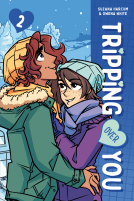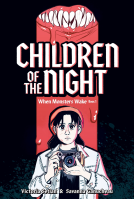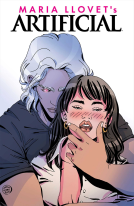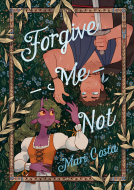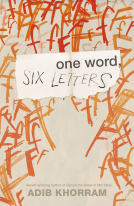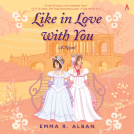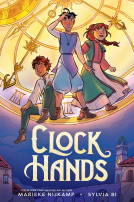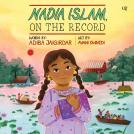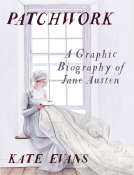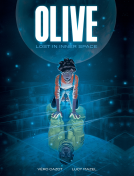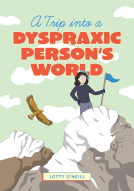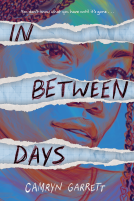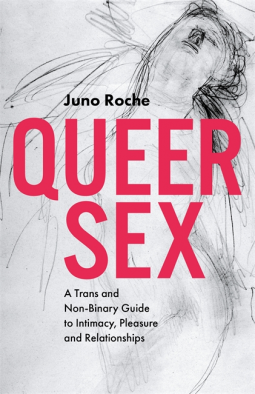
Queer Sex
A Trans and Non-Binary Guide to Intimacy, Pleasure and Relationships
by Juno Roche
This title was previously available on NetGalley and is now archived.
Send NetGalley books directly to your Kindle or Kindle app
1
To read on a Kindle or Kindle app, please add kindle@netgalley.com as an approved email address to receive files in your Amazon account. Click here for step-by-step instructions.
2
Also find your Kindle email address within your Amazon account, and enter it here.
Pub Date Apr 19 2018 | Archive Date Apr 19 2018
Talking about this book? Use #QueerSex #NetGalley. More hashtag tips!
Description
'Queer Sex is simply phenomenal'. - Bitch Media
In this frank, funny and poignant book, transgender activist Juno Roche discusses sex, desire and dating with leading figures from the trans and non-binary community. Calling out prejudices and inspiring readers to explore their own concepts of intimacy and sexuality, the first-hand accounts celebrate the wonder and potential of trans bodies and push at the boundaries of how society views gender, sexuality and relationships. Empowering and necessary, this collection shows all trans people deserve to feel brave, beautiful and sexy.
Available Editions
| EDITION | Other Format |
| ISBN | 9781785924064 |
| PRICE | $18.95 (USD) |
| PAGES | 192 |
Average rating from 17 members
Featured Reviews
 Reviewer 132350
Reviewer 132350
4* Interesting and educational insight into trans sex, intimacy and how the trans females portrayed viewed themselves.
The author is a MtF transgender activist, in her 50s, who seems to have spent most of her life trying to find and become her true self, and once she's achieved this physically, has set off in pursuit of emotional and sexual relationships. Not necessarily in person, but via the people she's met and interviewed, and those that have happened to come into her life.
I felt rather sorry for her, because of the age at which she'd transitioned and the feeling of redundancy in the way in which she wrote about her post-op body and what she expected of it, wanted of it and what she did not achieve with it. However, at the end of the book, after reading the accounts of the various transgender couples and singletons she'd met, I felt hopeful that she felt hopeful about her future. I was glad that she is a trans female in the UK, and not some other country where her life might have been made a living hell. And no, I don't for a moment believe that the UK is perfect - Stonewall says that trans hate attacks and transphobia have been on the increase in 2017 - but, for the most, we do have an attitude of live and let live, and especially so in London.
It was humbling to hear of the tales of the trans females, only a couple of whom happened to be under 30, and to hear of their sense of pride and personal achievement once they'd attained their dreams. No two dreams were the same, and no two lives portrayed were, and I found it really interesting to see the contrasts. All seemed to want love and a relationship, some weren't too bothered about the sex side, but more so in the intimacy and relationship-building, and I found the various types of relationship portrayed interesting. I recall one poly, one committed and monogamous, and one committed but polyamorous, if the opportunity arose. I admired their bravery, their commitment to finding and becoming themselves, and that none considered age a burden or an advantage - there were 20 somethings, 30 somethings and people approaching, or actually in, their 50s.
To a straight woman who's taken her body for granted, this is a humbling and thought-provoking read. I did nearly give up at Juno's overly lengthy monologue at the start, wondering if I'd read the blurb wrong and had gotten one woman's tale, but persist and you'll find a book worth reading for the emotional content and for the educational content.
ARC courtesy of NetGalley and Jessica Kingsley Publishers, for my reading pleasure.
 Librarian 201634
Librarian 201634
I was really interested in this book with the growing conversation about transgender issues, rights, and normalisation in society. While I'm not trans myself, I'm a huge supporter of trans people I know publicly and privately as well as the whole LGBTQ+ community. That being said I never really felt it was my place (or my business!) to ask them about "bottom" surgery or the mechanics of how they would have sex after they transitioning. When I saw this book on NetGalley I was intrigued, as it allowed me to go to these very delicate places I never would have dreamed to going to before and it really was eye-opening!
Juno Roche is an incredibly eloquent and smart woman. She opens the book in an almost confessional tone, talking about her being a "vaginal virgin" with her "neo-vagina" (later on in the book, you come across the term transgina, which I quite like!),
You go through Juno's transition, her desperately thinking that all her problems would be solved once she had the physical features she so desperately desired, but while this was a great experience she doesn't regret, there are many other journeys and things you have to discover about yourself before you can be fully at ease with your body.
Juno interviews various other fascinating transgender, non-binary individuals all over the UK who all reflect on the idea of gender, whether it is infact linked to genitalia or just how you feel. Can a person who identifies as a woman or non-binary be masculine and vice versa? What is it with societies obsession with sex having to equal penetration and can you be happy if your sex life is all in your head?
So many brave and pioneering people, paving the way to do what feels right for them, irregardless of physical form, social conventions or what has or has not been "home-grown".
Juno has bared all and I am grateful to her for this. There are so many new concepts I can't believe I hadn't even thought of before and I feel my understanding of the trans community have only grown and deepened, so I feel I can connect at a deeper level.
 Beth H, Reviewer
Beth H, Reviewer
I found it a little bit difficult to get into t first, however it was very insightful. It was great to see how certain issues occur in this community and how it may affect them.
It was very open and honest and I did enjoy it.
 Reviewer 303307
Reviewer 303307
I've been looking for a book on this topic for a while, so the title instantly caught my attention. Unfortunately, I think I misunderstood what this book was going to be. It was interesting, but I was hoping for something a little more structured than just transcripts of conversations interspersed with the author's history.
While I struggled with some aspects of the interviews (particularly the talk - and assumptions - of drug abuse), and found the narration a little jarring (I had to reread some paragraphs multiple times to get the sense what was being said), Queer Sex was still an interesting read. A Trans and Non-Binary Guide to Intimacy, Pleasure and Relationships flips the gender conversation on its head and makes it about something we are increasingly told should not matter - sex, surgery, and genitals.
Juno Roche uses her own experience as a trans woman to frame the book, talking about her struggles with her neo-vagina, and her troubles with sex and intimacy. Along the way she interviews a wide range of transgender, non-binary, and gender nonconforming people, talking to them about their experiences pre, post, and non transition. Their experiences range from painful stories of bullying and abuse (sometimes self-abuse) to joyful stories of love and affection. There are relationships based on group sex, Tantric masturbation, kissing, and self-intimacy. In some cases penetration is the goal, and in others it is something to be avoided at all costs.
Even knowing as much as I do about the trans community and trans issues, the amount of detail surrounding gender reassignment surgery was still astounding. I knew about the mechanics of things like dilating, but the logistics of depth and width, of construction and placement, and of appearance were fascinating. It is so easy to think of surgery as a be-all and end-all, but we learn that it is just another stage, another step, another tool in the process of self-love.
Most importantly, Queer Sex reinforces the understanding that masculine/feminine, male/female, and straight/gay do not necessarily correspond to one another. Love and intimacy can be found in any combination, and what works for you does not have to work for anyone else.
I have so much experience in my life with trans people. While I am not trans, some of my closest friends are trans, currently transitioning, or considering transitioning. It is so important for these types of texts to exist. Transitioning is a completely overwhelming and terrifying time in one's life. While the transition gets you the body you've always felt you deserved, others' stares and opinions take a toll on you. Trans issues have only begun to be discussed in recent years. This book is a step in the right direction. This book has the potential to guide those transitioning into an easier change. Not only could this book benefit transgender people, it could also enlighten the straight community. It would be great if trans people could stop having to explain themselves or be invaded by personal questions such as what have you got downstairs then? Just hand them this book and you don't even have to deal with it. This text is important and I'm so glad it exists.
Most sex education is aimed at straight cisgender people and can exclude those outside of this definition and leave them without the information they need. There is a growing number of resources for LGB+ people, but there is still very little for trans and/or non-binary people. Trans men and non-binary people are often made invisible. Meanwhile, trans women are sexualised as objects, but their own wants, needs and desires are ignored. This book fights back against this marginalisation and focuses on trans and/or non-binary people reclaiming discussion space and ownership of their own bodies.
I had expected it to be a guide or resource, along the lines of Mira Bellwether's zine, but it is a very different format. In the introduction, the author discusses her own life, insecurities and relationship with her body. The rest of the chapters feature interviews with trans and/or non-binary people from a wide range of ages and backgrounds, along with the author's personal reflections on these conversations.
The book is unflinchingly honest and personal as the author and her interviewees set out to break taboos and the silence around trans people's bodies and sexuality. They discuss the medicalisation of trans bodies and the way fitting into a binary narrative- including the way surgery is seen as a necessary end point- has been pushed on people whether they want it or not. They talk about a growing trend for trans people to build supportive communities with other trans or queer people, rather than relying on outside approval and validation from mainstream society. They discuss things which are still seen as taboo to discuss, even among trans communities, such as the way transitioning (socially and medically) are presented as a magic cure to every problem in a person's life- such as loneliness, which is a common issue but especially affects trans and/or non-binary people- and the confusion and disappointment when this turns out not to be the case.
I would recommend this to any trans and/or non-binary person, or someone questioning their gender. It doesn't have all the answers, but it raises a lot of questions, shows a variety of different viewpoints and promotes honest communication over living in silence. I would also recommend it to people in the LGB+ community looking to become more aware of trans issues and be more incusive.
I can’t really rate this book. I don’t feel like I’d be legitimate to.
I will, however, tell you what I felt while reading it.
I thought the content of the book was pretty powerful and could be very useful to trans and non-binary people.
But I wouldn’t call it a guide. It felt pretty personal to the author and it was more about her journey than anything else. It was still very interesting but really didn’t read like a guide.
Finally, the writing style wasn’t for me. I found her sentences to be too long and just overall, I had trouble staying focused.
I don’t know what to add so I’ll stop now.
Long review copied from blog
Since these books, share a similar focus, I am going to review them together. They both deal with transgender experiences of all kinds, outlining; the physical nature of living as a transgender individual, the violence that the authors have experienced as a product of society's hostility to their identity, the authors' experience of the various aspects of the transgender/queer experience, their feelings concerning their own identity, the authors' relationships with their physicality, and the variety of changes that can occur within bodies undergoing a varied array of transitioning experience.
Written on the Body is in the form of letters to various parts of the physical torso. They look at the authors' ambiguous relationships with various aspects of their physicality. Some authors explore the effects of physical, and sexual violence, on their feelings towards the chosen body part. While others, discuss what happens when a body part feels wrong or uncomfortable. They discuss their struggles to come to terms with a body that feels at odds with their perceived identity. These letters are moving and insightful. They are a must read for anyone; undergoing transition, anyone who is thinking of undergoing the process, those who identify as transgender/queer, or anybody who simply wishes to get a glimpse into the experiences of queer/transgender individuals.
Queer sex begins with the author's exploration of their relationship with their body and their physicality/ sexuality. The author then goes on a; physical, emotional and spiritual journey. In the course of their journey, the main author speaks to their mentors about their experiences of; living in their body, navigating a world that is often hostile to that body, and finding a way to live their own chosen identity. These conversations deal with issues of; confusion, pain, self realisation, growing self confidence and pride.
Queer sex deals with issues, of; self hate, social norms and their effects on our self image, self love, pride, and self empowerment. It grounds personal experience in; communal narrative, and an existing theoretical framework; thus, providing a multilayered investigation of a slice of the queer experience. It is well worth a read
As a Cis disabled woman, these books: gave me a glimpse of an experience that I cannot share. At the same time, the stories of the narrators' lives allowed me to dwell on my own experience of living in an, occasionally, hostile body. Therefore, reading these books was an emotionally moving, challenging, empowering, and ultimately joyous experience. These books are worth a read
Short review for other sites.
Queer sex begins with the author's exploration of their relationship with their body and their physicality/ sexuality. The author then goes on a; physical, emotional and spiritual journey. In the course of their journey, the main author speaks to their mentors about their experiences of; living in their body, navigating a world that is often hostile to that body, and finding a way to live their own chosen identity. These conversations deal with issues of; confusion, pain, self realisation, growing self confidence and pride.
Queer sex deals with issues, of; self hate, social norms and their effects on our self image, self love, pride, and self empowerment. It grounds personal experience in; communal narrative, and an existing theoretical framework; thus, providing a multilayered investigation of a slice of the queer experience. It is well worth a read
Readers who liked this book also liked:
Suzana Harcum; Owena White
Comics, Graphic Novels, Manga, LGBTQIAP+, Teens & YA
Victoria Setian
Comics, Graphic Novels, Manga, Teens & YA
Charlotte O'Neill
Children's Nonfiction, Comics, Graphic Novels, Manga, Parenting, Families, Relationships

